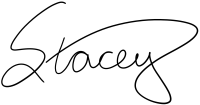Magnifiers and Mirrors

5 May 2020 | Theme: Reflections | 8-Minute Read | Listen
Launched 1 May 2019, DoYouMind.life has just turned a year old, and what a year it’s been! As with any new endeavor, it has had its ups and downs. Certainly, I have made mistakes, tried things that didn’t work, and fallen short of completing all the ideas in my head. But looking back, I also see what I have accomplished: I’ve written over 70 articles about themes that are relevant and timely; I’ve shared 16 conversations with inspiring women on the podcast; I’ve been intentional about including women from diverse backgrounds, both as podcast guests and as authors I’ve reviewed; I’ve gotten vulnerable and shared some stories that are difficult for me. And I’ve done all of this while going through the biggest year of transition of my own life and an unprecedented global health crisis.
We are conditioned by our culture to look into the mirror and see all our own flaws, but as I reflect back over the past year, I feel both proud and incredibly grateful. First, I am deeply touched by the support of my people—that circle of friends and family who have been there for me since long before Launch Day. I appreciate each of my podcast guests, who came with their whole selves to share their stories. I am grateful to everyone who has worked with me on this project—even though the team looks quite different from a year ago, each person who has worked with me has contributed to the DoYouMind.life project in meaningful and valuable ways, and I deeply appreciate their contributions. I am fortunate to have several Patreon patrons to whom I express my thanks for their financial contributions to this project. And I am grateful for you, Dear Reader. Thank you for showing up with your whole heart to engage with the themes.
I don’t know about you, but March and April are a bit of a blur to me. The COVID pandemic has interrupted our “normal” lives and caused us to shift the way we do everything, and the past two months feel like some sort of time warp. While I have spent each day fully engaged with various projects, I feel as if I am moving slowly through time, as if I’m out of sync with whatever may be happening outside my little cocoon.
Maybe you feel that way, too. Perhaps what connects us most right now is our collective feeling of disconnection. It’s as if this moment in time has been sliced away from the landscape and is being suspended over uncharted territory—we have no way of knowing where or when it will land.
The metaphor (and I do love metaphors) for the pandemic that seems most apt to me right now is a magnifying glass. It is as if the coronavirus has held up a magnifying glass to everything that was there before, and said, “Look! Can you see yourselves NOW?”
If you were a glass-half-empty sort of person before COVID-19, you may feel isolated and hopeless now. Of course, constant exposure to television news will magnify this even further—the news isn’t designed to make us feel good. It’s created to keep us on high alert. But if the familiar pattern of thinking pre-coronavirus was negative, it has likely become constant hand-wringing, helplessness, and despair over the past two months.
People who were living paycheck-to-paycheck before the pandemic, already on the cusp of food insecurity and financial hardship, have lost their jobs as the entire economy has contracted and the unemployment rate, according to The Guardian, may spike to between 16% and 20% by June.
Domestic violence has risen; when dysfunctional families are forced to be in lockdown, violence escalates. According to Amanda Taub, “As quarantines take effect around the world, that kind of ‘intimate terrorism’ — a term many experts prefer for domestic violence — is flourishing.”
The pandemic is magnifying all the issues we have too long ignored or dealt with poorly: mental health, education gaps, health care, the food supply, poverty, and more.
But the magnifying glass doesn’t just pick out the negative—everything falls under its lens, and that which was good in people before is even better now. Look at the heroic efforts of health care workers. Look at how neighbors are helping neighbors, calling each other or texting to ask what they need. Look at how our desire to stay in connection with others has caused us to create drive-by birthday parties, virtual book clubs, and impromptu balcony concerts. Museums, opera companies, Broadway shows, and more have offered ways for people to learn, explore, and enjoy from home.
Some people have dealt with their feelings by taking action. My next-door-neighbor, for example, decided that she could contribute by making fabric masks. She has now made and donated over 700 masks to our community, many to the oncology department of local hospitals. She saw a need, she had a sewing machine and a fabric stash, so she put her energy into action. It’s impossible to sit around feeling helpless when you are helping others.
I’ve also seen that people who had a strong spiritual practice before COVID-19 have maintained their balance. They certainly feel negative feelings and think negative thoughts, but they don’t stay there. When pain or fear arise, they feel it fully, and then let it go.
The thing is, we get to choose how we show up in the world for this one precious life. Just as we can choose joy and practice gratitude (which I wrote about in February and November), we can spend this time exercising our positivity “muscles.” Instead of, “Oh woe is me! What can I do?” we can say, “What can I do to help? What skills and resources do I have that the world needs right now?”
Yes, there will be terrifying headlines. Yes, people are suffering. Yes, people are sick, and some are dying. And yes, we are all dealing with collective grief. The way we get through this is first to acknowledge that it is difficult, and then to help one another.
This was beautifully described by grief expert David Kessler on Brené Brown’s podcast Unlocking Us. (If you haven’t already subscribed to Brown’s podcast, I encourage you to do so—it’s amazing, uplifting, and what we all need to hear!) Kessler told the story of the man who walks into a room with a beautiful banquet, with every delicacy imaginable. The tables are heaped with glorious foods, yet everyone in attendance is gaunt and suffering, because the only way to eat the food is with spoons that are too long to bring to one’s mouth. The man is told that this is Hell. He is then taken to another room with the exact same set-up. Same tables, same foods, same long spoons. But in this room, everyone is happy and healthy, and there is a spirit of love and joy, because in this room, the people are feeding each other.
May is going to be a month of reflection. Each of the 12 themes from the past year is still with me; there are articles I still want to write, books I didn’t review, and podcast conversations I haven’t yet had. During this month, I will revisit those themes and post the articles I didn’t share before. I also plan to create more resource pages to help you explore the themes. And I will continue to give the DoYouMind.life website its facelift to make it easier to navigate and more interactive.
Be well, Dear Reader. Be gentle with yourself and others. Breathe. We’re all in this—let’s all be in it together.
Until next time,

Article Content
Resources:
Brown, Brené. “David Kessler and Brené on Grief and Finding Meaning.” Unlocking Us with Brené Brown, 31 March 2020. https://podcasts.apple.com/us/podcast/david-kessler-and-bren%C3%A9-on-grief-and-finding-meaning/id1494350511?i=1000470046138
Rushe, Dominic. “Another 3.8 Million Americans Lose Jobs as US Unemployment Continues to Grow.” The Guardian, 30 April 2020. https://www.theguardian.com/business/2020/apr/30/us-unemployment-americans-jobless-coronavirus-pandemic
Taub, Amanda. “A New COVID-19 Crisis: Domestic Abuse Rises Worldwide.” The New York Times, 6 April 2020. https://www.nytimes.com/2020/04/06/world/coronavirus-domestic-violence.html
If you enjoyed this article,
please share on social media!
NEXT ARTICLE

Squishy Time, Revisited
15 May 2020 | Themes: Reflections/Time | 7-Minute Read
In light of the pandemic, I want to revisit the concept of Squishy Time. If you’re feeling adrift on the Sea of Indeterminate Time, you’re in good company. For me, it’s a feeling of being busy every day, yet getting to the end of the day and wondering just exactly what I accomplished. . . Where has the time gone? . . .
4 thoughts on “Magnifiers and Mirrors”
CONGRATS on your 1st anniversary. You are a very strong person and positive person. Thank you for all that you have shared with us this past year.
During this pandemic, I have heard many positive things from people because of the quarantine. We are slowing down, cooking more, and being creative.
Thank you, Karrie! This year, my big goal is to get you, my readers and listeners, to begin to share more, too! I would love to see lots of comments and conversation about each article, because that’s where the magic happens!
This virus has absolutely held up a magnifying glass and exposed so many systemic flaws in our “normal.” I hope we create a new one.
I agree, Mia. I hope it spurs us to make sweeping systemic changes that are rooted in justice for everyone and care for our most vulnerable.